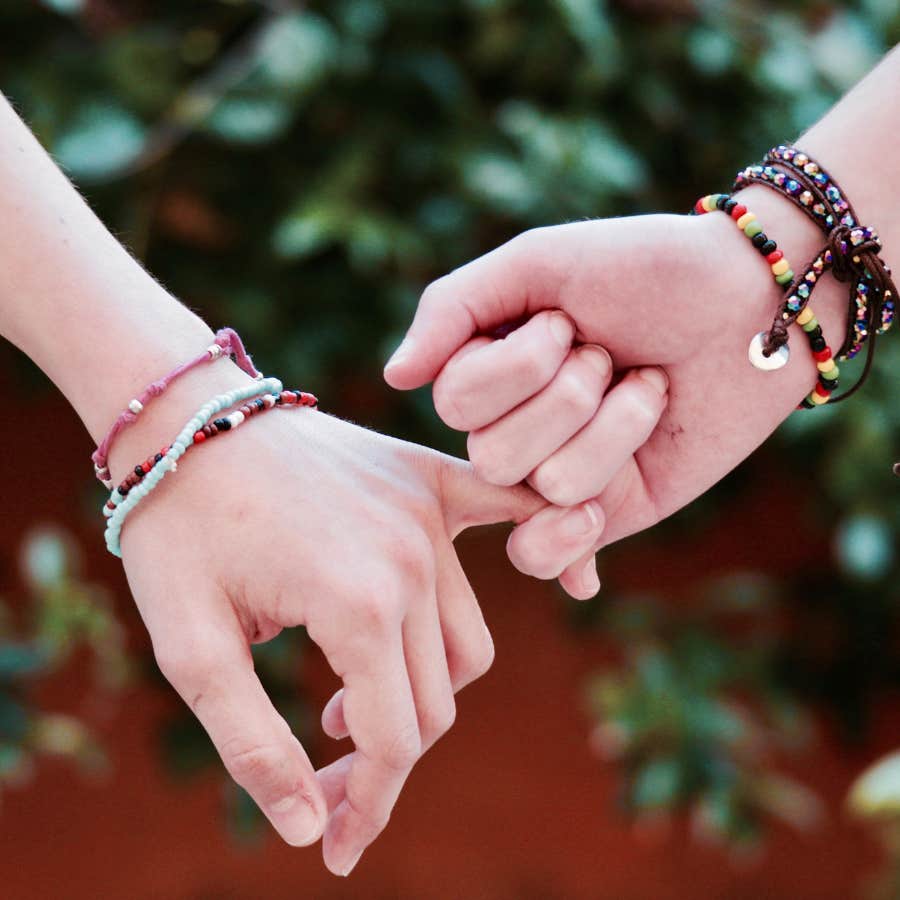For Closer Friendships, Seek Out People Who Hate The Same Things You Do
Let your inner hater free.
 Shutterstock / Diego Cervo
Shutterstock / Diego Cervo Think back to your first day of school — the freshly-sharpened pencils, new notebooks, and the anticipation of finding out who else is in your class. Back then, making friends was simple, as being surrounded by other kids meant connecting fairly quickly.
Growing older brings its fair share of challenges, not the least of which being how to make friends.
Finding people who hate the same things you do is one way to form close friendships.
A 2006 study conducted by researchers from the University of Oklahoma and the University of Texas at Austin found evidence that people connect over shared dislikes quicker than over shared likes. Specifically, we tend to bond more quickly with those who dislike the same people we do.
The researchers’ findings were published as a journal article titled “Interpersonal Chemistry Through Negativity: Bonding By Sharing Negative Attitudes About Others.” The hypothesis proposed that “sharing a dislike of another person should facilitate closeness more powerfully than sharing a liking for that person,” and the reported findings supported that theory.
Two people who share a negative attitude toward a third person are likely to feel a close bond that’s rooted in their mutual dislike.
 Photo: Armin Rimoldi / Pexels
Photo: Armin Rimoldi / Pexels
This conclusion seems counterintuitive in some ways, as most people try to see the good in others, and aim to be seen in a positive light, as well. Yet the study based its findings on evidence that negative impressions of a stranger are weighted more heavily than any positive impressions of that person.
In other words, we’re more likely to recall someone’s bad traits over their good ones.
Theories on gossip as a valuable social tool support the idea that we seek out friends with similar dislikes.
The researchers defined gossip as “an exchange of personal information about absent third parties that can be either evaluatively positive or negative.” Yet they maintain that negative gossip lays a foundation for closer friendships because of its function as a social determinant.
Two people with similar negative attitudes are likely to feel a strong bond, as those particular attitudes “foster feelings of connectedness and self-esteem by establishing a ‘we’ that is superior to the ‘they’ represented by the disliked other."
Negative gossip creates a sense that there’s an in-group and an out-group; the people sharing that gossip see themselves as part of each other’s in-group, which means they feel close to one another.
 Photo: Pixabay / Pexels
Photo: Pixabay / Pexels
When someone tells you that they hate another person, they’re letting you into a part of their inner world, a part they might not let many others see. If you respond by commiserating in that hate, an instantaneous bond clicks into play. If we both hate that other person, maybe we’ll like each other.
The study’s initial findings could be summed up with the well-worn adage, “My enemy’s enemy is my friend.”
Participants in the study maintained that a positive attitude leads to the creation of a close friendship, despite evidence to the contrary. Gossip serves the important function of bringing people closer and, as the study revealed, it turns out that everyone loves a hater.
So next time you're hate-bonding with the barista at your favorite coffee shop about the regular with the man bun and a grumpy attitude, don't be too hard on yourself. You might be well on your way to making a new bestie!
Alexandra Blogier is a writer on YourTango's news and entertainment team. She covers relationships, pop culture analysis and all things to do with the entertainment industry.

